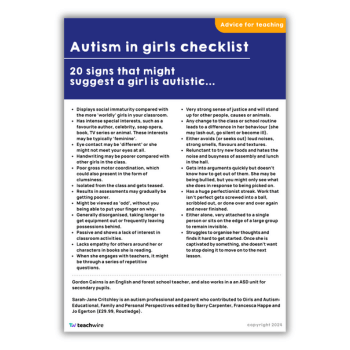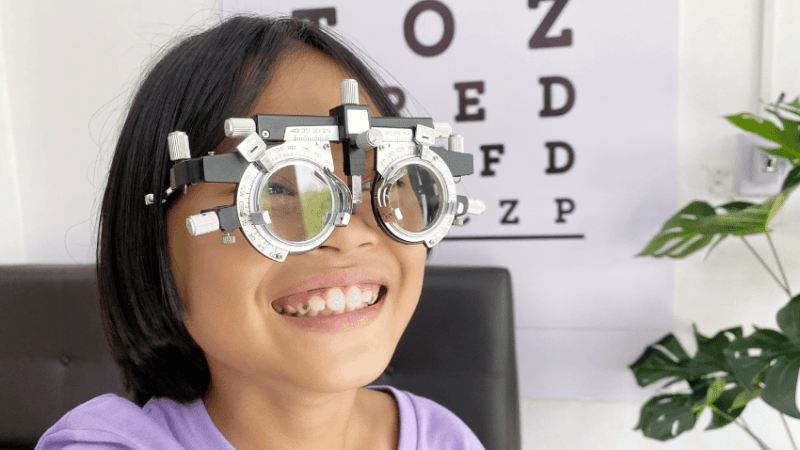How Children With SLCN Get Great Support At Aerodrome Primary Academy

With the right support, even children with severe communication difficulties can access mainstream education, says Jacob Stow – just look at what’s going on at Aerodrome Primary Academy…

- by Jacob Stow

‘Children should be seen and not heard’ – was ever a proverb more inaccurate or unwelcome?
But while it’s tempting to dismiss such sentiments as products of a bygone age, that would be to ignore the growing evidence that more and more of this country’s children are struggling to communicate.
Whether it’s a symptom of society embracing technology at the expense of conversation, or a sign that we as adults aren’t so rid of the desire for domestic peace and quiet as we might pretend – or that we’re simply too busy to talk like we once did – is hard to say. But it’s a state of affairs that staff at Aerodrome Primary Academy in Croydon are acutely aware of. “We used to rely on children coming to school speaking, but that’s not always the case now,” headteacher, Zoe Foulsham, tells us. “It’s increasingly a problem. Every year there are more cases of speech and language delay, and in some cases disorders. It’s the biggest need in Croydon today, and it’s been a hidden need for many years. It’s causing issues across the country.” Zoe points to a range of contributing factors, including those touched upon above. But while prevention is always better than cure, Aerodrome’s response to the challenges their children face is a fantastic example of the impact that determined schools can have when faced with such issues.
So impressive has it been, in fact, that the school was named ‘Primary School of the Year’ at the 2015 Shine A Light Awards, which recognises excellent practice in supporting children and young people’s communication development. “ We’ve set up the whole school for oracy,” says Zoe, summing up Aerodrome’s approach. “Everything we do, from early years all the way through, is based on talking.”
To back up that claim she can point to a host of initiatives that are making a difference in the classroom, as well as a dedicated Speech & Language Resource Centre. The latter was originally created to support those with specific needs, but is now also helping to disseminate excellent practice throughout the school. Even the learning environment has been resourced with the need to get kids chatting firmly in mind.
Challenging circumstances
Raised from the ashes of a special measures victim, Aerodrome is a relatively young school – Zoe took charge four-and-a-half years ago, not quite a year after it first opened its doors – and converted to an academy after receiving a ‘good’ from Ofsted in 2012, becoming a founding member of the REAch2 Academy Trust.
“There was lots of work to do when I arrived,” Zoe tells us. “Initially there were some behaviour issues and cohesion issues, in terms of bringing what was a new community at the time together. And of course, as with any new school that’s been through a turbulent time of change, you’ve got to bring a team together too.” These early challenges have been successfully negotiated, in the main. Thanks to effective pastoral support, behaviour, Zoe says, is now fantastic, judged as ‘outstanding’ in a recent MTI inspection. An increased togetherness is evident in an already traditional cultural carnival, which celebrates diversity while embedding the school at the heart of the community. Perhaps most importantly, an established and multi-talented team focused on self-improvement is now in place.
But despite the successes, deeply rooted challenges remain. The diverse community Aerodrome serves means many children here have English as an additional language (EAL), while the proportion of children with special educational needs (SEN), and in particular speech, language and communication needs (SCLN), is well above the national average – as is the number of disadvantaged children. “This is a really tough school in terms of the deprivation our children experience,” Zoe admits. “We have a job to do, in terms of teaching and learning, but we do it by having great fun, albeit fun with a huge amount of pace and rigour. How children respond to learning, how they feel about it is the most important thing. If they’re feeling positive, they’re likely to learn a lot more than if they’re being done unto.” In keeping with those sentiments, there’s more than a hint of the early years about Aerodrome’s approach to teaching and learning, as well as a focus on developing independence, which Zoe stresses can be all too easily closed down by overly academic pedagogies.
And through everything runs the focus on oracy, addressing the real need in the school’s intake. It’s a focus that acquired considerable momentum early on in Zoe’s tenure with the creation of the school’s Speech & Language Resource Centre, AKA its ‘Enhanced Learning Provision Base’.
Specialist support
“We were asked to have the Base here by the local authority during my first year at Aerodrome,” Zoe explains. “I think they realised the school could do really great things because we had the right team in place, and after our Ofsted it was clear that we could really move forward with these children. Although it’s a fully integrated part of the academy, it’s funded by the LA and children come from all over Croydon.
‘We only support a relatively small number of children with more pronounced speech and language difficulties. We have 17 at the centre at the moment (though there have been up to 19), which is based on adult ratios and what we can manage in terms of giving them the best support – but we’ve come to apply a similar approach to that used in the Base with all the children in our school.” Those who come to use the Base itself benefit from a sizeable, open learning environment. “It’s not just an add-on room,” Zoe notes. This is very much in keeping with the aforementioned early years influence. A specialist team, led by assistant head Vicky Prigg, provide the support necessary to help individuals develop the skills they need to succeed in mainstream classrooms.
There’s no question of a ‘one size fits all’ approach, with each child receiving a bespoke curriculum tailored to their needs: “If a child is really strong at maths, for example,” Zoe says, “they might be taught that subject in the mainstream classroom while spending time in the Base to work on the communication skills. Of course that means that all of our staff have to be really skilled in teaching communication; we have to have a whole-school view on it.” Within the Base, the focus is firmly on speaking and listening, with priority given to the development of functional language skills and the confidence needed for communication, while mums and dads are invited in to regular parents meetings, at which staff model specific strategies that can be employed at home.
Staff here regularly provide training to NQTs and students, too, aiding early identification and support strategies for pupils with SLCN within Aerodrome and other mainstream schools in the locality. The flow of knowledge from the Base to other teaching staff is enhanced by the fact that specialists, such as Vicky and speech and language therapist Maxine Whitmore, are to be found working across the school, particularly in the early years, in an effort to minimise the impact poor communication skills have on children’s education. As a result, many strategies initiated in the Base are today benefiting children far beyond its four walls.









